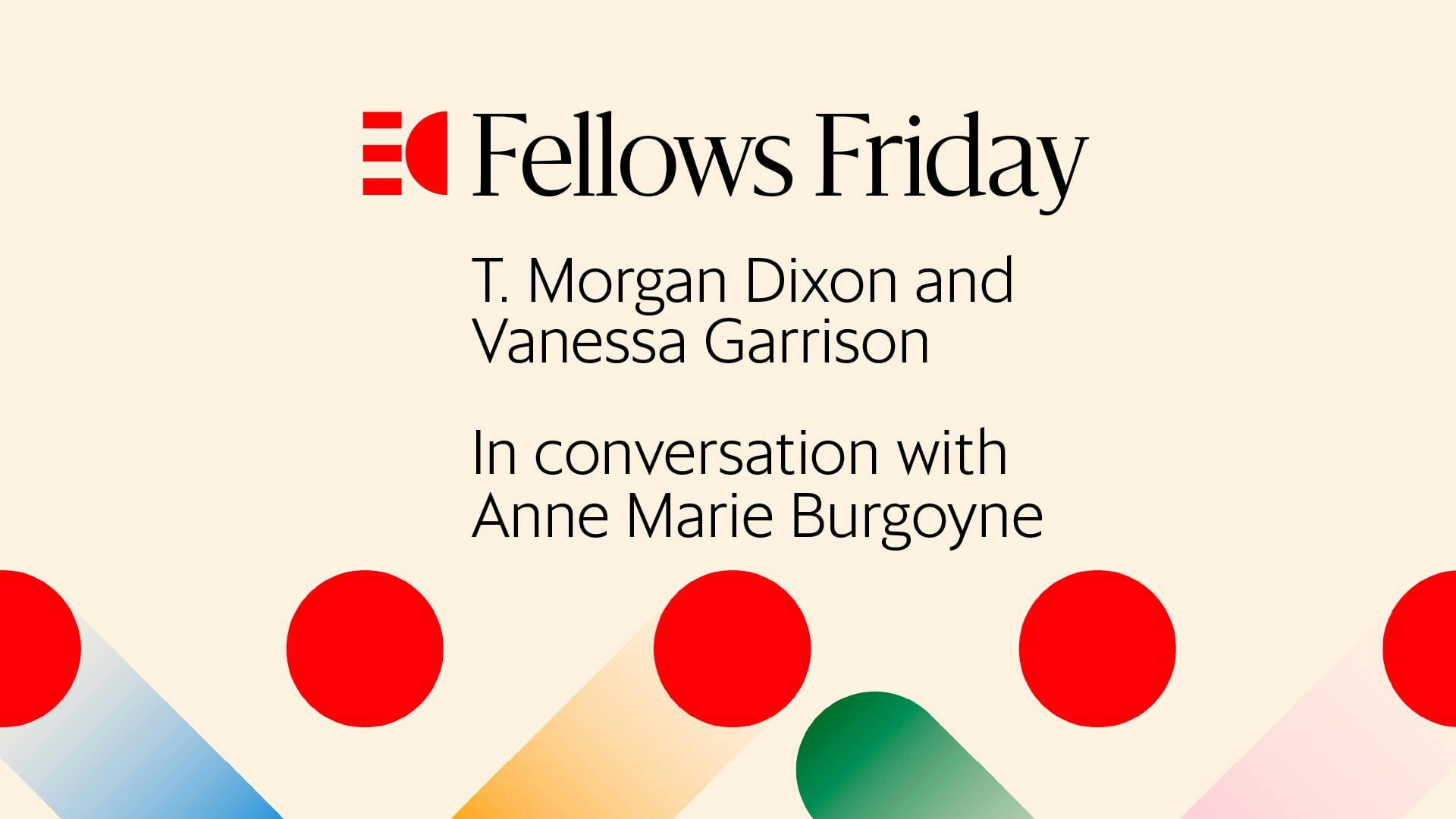
GirlTrek Uses Black Women's History To Encourage Walking As A Healing Tradition
1 min read
Walking might seem like a casual occurrence, but for Morgan Dixon and Vanessa Garrison, it’s “the single most powerful thing a Black woman can do for her health.” Their nonprofit, GirlTrek, the largest national health organization for Black women and girls, started in 2010 as a challenge for the women and the girls in their lives to commit to a daily walk. Today, over 1.1 million women and girls have made that pledge, and have inspired thriving, healthy communities along the way.
Yet reducing Dixon and Garrison’s work to a “walking organization” would be a misstep. GirlTrek is focused on a “health movement.” Its mission is not to end a single health issue, like obesity, but to solve chronic and systematic injustice, according to Dixon. That’s partly why the organization sees itself as a “campaign for healing.” For Dixon and Garrison, obesity and chronic illness are merely manifestations of the long history of injustice shouldered by Black women in this nation. For this reason GirlTrek is rooted in the conviction that when Black women are able to own and prioritize their health, the entire country benefits.
Inspired by women like Harriet Tubman and Fannie Lou Hamer, GirlTrek grounds itself in civil-rights history — serving as a testament to the powerful truth that when Black women gather, choose to take a step forward, and walk, things change. Dixon and Garrison believe a daily walk is not only a tool for Black women’s health, but also an act of reclamation of their neighborhoods, streets, and agency. This is the heart of the GirlTrek movement — a social infrastructure, steeped in community, that enables Black women to thrive.
Recently, Dixon and Garrison, who are Emerson Collective Dial Fellows, joined Managing Director of Social Innovation Anne Marie Burgoyne to discuss their work against the backdrop of the COVID-19 pandemic, their organization’s focus on Black women, and why “radical rest” is critical to movement building and transforming systems.

FELLOWS FRIDAY SERIES: GirlTrek co-founders Morgan Dixon and Vanessa Garrison discuss the expansive mission of their organization, how it’s responding amid the pandemic, and the importance of “radical rest” for Black women.
Vanessa Garrison: It is our daily call to action as a team to ask ourselves: “What do Black women need today, right now?” It’s not “What does our strategic plan say?” or “What did the grant we submitted say?” We are asking, “what do Black women—who are dying faster than any group in the country, who do not have lifelines of support—need?” Over this past year, what they have needed is GirlTrek's ever-ready and ever-present solution. When women have been isolated and alone, we have built community. Where women have been disconnected from activity, we have provided opportunity to move. Where women have been struggling with mental health, we have come in with support.
**Morgan Dixon:** The Black community has been navigating catastrophe for so long that we have emergency, front-line responses for a lot of things already. It goes all the way back to when we couldn’t stay in hotels, and we had to build a network ourselves to keep and protect us. GirlTrek is in that tradition of never asking permission to save our lives, and never waiting for resources to come, but building them through an asset lens. We developed an infrastructure on sweat equity, consisting of virtual communities that support women—even when they are isolated. When COVID hit, we already had the pieces to reconnect people.
**Morgan Dixon:** Rallying a million Black women to walk together in the direction of their healthiest, most fulfilled lives is an act of hope and mindfulness, and it’s powerful. It’s the tiniest part of our very sophisticated strategy, but it’s the part people could hold. And every day we grapple with trying not to reduce our solution for the sake of simplicity into things that are easy to measure. We strive to be expansive and abundant while moving a million women forward. Initially we asked, “What’s the single most powerful thing we can do to improve Black women's health?” It was walking 30 minutes a day, five days a week. We knew that when women start walking, it becomes this trigger for other healthy behaviors, and we knew when Black women get involved, everything can change.
MORGAN DIXON“Radical rest” is a response to the exploitation of Black women’s labor and that constellation of societal failures.
**Morgan Dixon:** The problem GirlTrek is trying to solve is most certainly not an obesity issue. It is hopelessness, generational trauma, exploitative labor, chronic and systematic injustice, deep poverty. I give you that frame because radical rest is a response to the exploitation of Black women’s labor and that constellation of societal failures. It is Audre Lorde who teaches us that self-care is an act of political warfare when we’re talking about labor issues. Vanessa and I are trying to learn from women like Fannie Lou Hamer, too, asking ourselves, “How do we both fight hard and rest hard?” We hope to inspire women to be able to do both.
**Vanessa Garrison:** We give every person on our staff a six-week, annual sabbatical so that we can reconnect to the source of our inspiration. There are still so many people who wonder how we can do that, but how can we not? This conversation around self-care must go bigger than the individual to understand that everything we are doing is a tool against the systems that have crushed so many people whom we love and care about. There is no disconnect between the work we're doing publicly, and Morgan and I saying: “We can't work 90 hours a week and care for other Black women; we need time off.” Self-care, work, and sanity to me are all one thing.
**Morgan Dixon:** For anybody out there who does not feel safe being who they are, where they are, I say: Just practice small acts of truth-telling and vulnerability every day to show up as yourself. There is no hiding; we can’t lose you behind anything. We can’t lose you to early death because you’re hiding; we can’t lose you in our communities because you’re in your apartment. 2020 showed the world that it needs Black women. Our work is to reanimate our bodies, to bring energy back into our lives, and to do so bravely in a world that is harsh and violent still. We will do that together; and we welcome you into the GirlTrek community to do it collectively.
**Vanessa Garrison:** We target Black women because we are dying at higher and faster rates, and we believe that Black women have a leadership potential that has been under-tapped and underutilized in this country. We are centering on Black women, but inviting allies and women and men and friends, because that’s what community looks like.
**Morgan Dixon:** Allies, and particularly Black men: We need you. You are part of this movement. There are these intractable problems that make it hard for us all to breathe. Everything, from poverty alleviation, to prison reform or abolition is necessary work. Please, please continue to do that, and continue to love us, and listen. We also invite everyone to join us for Black History Boot Camp. It’s a 21-day walking podcast where we explore historic stories every single day as we walk, and Vanessa and I talk about people we love and Black history.
Morgan Dixon: We want policy—both on the federal level and on the local level—that honors our lived experience and allows us to thrive. With a support base of a million women behind us, and constant evaluation of their needs, both Vanessa and I feel very prepared to sit on advisory councils to advocate with our representatives to get the things we need. Please invite us to the table, because we would love to create policy that is a win for us all.
**Vanessa Garrison:** Plus, there are a lot of ways that we are already doing it. We have so much to bring to the table around solutions that are already happening. It reminds me of one of our first taglines: “Less talk, more walk.” As we’re figuring all of that out, women are out there doing the work, and they are doing it to the benefit of so many of us—there is a GirlTrek woman behind the scenes who’s pushing forward change in your own neighborhood right now.